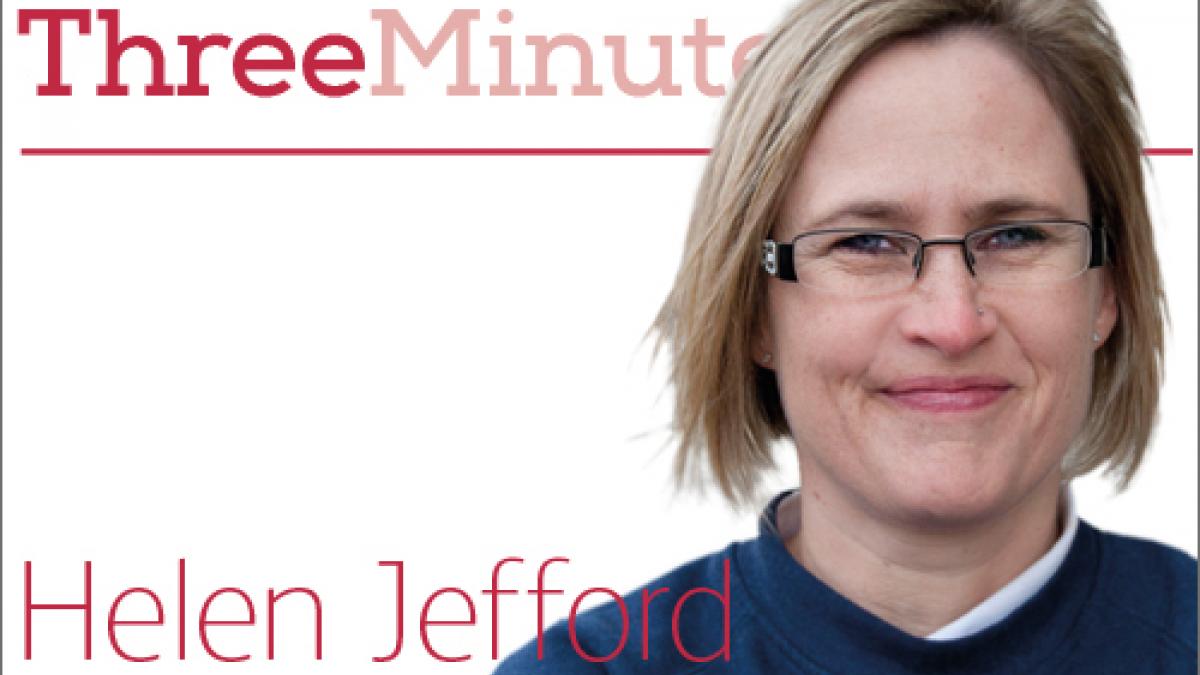The specialist physiotherapist celebrated several career highs after winning a CSP award in 2014 for her work with prisoners with COPD. Here she offers Frontline readers some tips for success.

Why did you enter the CSP awards?
Together with a highly-motivated prison nurse, Nina Turner, I set up and delivered the first pulmonary rehabilitation programme in a prison (a category C prison in Kent). The project was successful in terms of outcomes: huge cost savings and patient feedback, for example. The prison governor shared our vision – that prisoners with chronic obstructive pulmonary disease (COPD) are entitled to high-quality specialist care.
Their lack of knowledge hampered their ability to self-manage their condition and to know when they were unwell. This, in turn, had a huge impact on the resources of the healthcare department and on prison staff. We gained recognition from our trust and won a Nursing Times award in respiratory care in 2013.
I decided that the physiotherapy profession also needed to know about the work we’d done with this ‘difficult to reach’ group. I wanted to inspire others, to make pulmonary rehabilitation teams think about unmet needs in their local prison.
What did the award mean to you?
Personally, it was lovely to receive a big ‘well done’ having been qualified for 21 years that year. Professionally, I am pleased that respiratory care got some coverage in the physio world as it’s not always seen as the most glamorous of services.
How did it help to raise the profile of COPD problems among prisoners?
As a result of running the programme in prisons we produced a ‘how to guide’, which is available to prison respiratory healthcare professionals who are interested in following our example. See our new guidance here.
It has been very well received and we had interest from as far as Australia. We have presented the project and the guide at Association of Respiratory Nurse Specialists’ annual meeting. We have also presented to prison staff, physiotherapists and nurses here and abroad.
And you met the prime minister?
We attended an evening event at 10 Downing Street that celebrated the good work of healthcare professionals and voluntary organisations. As a result of winning the awards, we received an invitation by email (which, at first, I thought it was a scam). We spent a couple of hours drinking wine, chatting to others and, of course, ‘nosing’ in every room we were allowed into. I chatted to the health secretary, Jeremy Hunt, and got a few things off my chest. David Cameron thanked the 100-odd guests for our hard work. I shook his hand but it was a fleeting exchange. Attending No 10 was the highlight of my professional career so far.
We hear you are forging international links?
We are! Nina and I were invited to present our work in Saskatoon, Saskatchewan, Canada last October. It was an annual international custody and caring conference. We were fortunate in that the director of prisons attended our workshop and took all of our remaining guides. It was a great experience, and we managed to squeeze in an outing to an ice hockey game.
What are the next steps?
My secondment to support the healthcare team in Kent has ended, and I have reviewed the COPD care in my local prison. As this is a high-security institution it will need a slightly different approach. On a visit, perhaps not suprisingly, I found the same issues of patients having limited support with their disease, and I would like to address this with the support of their governor and their healthcare team. Nina is making inroads in her new workplace in another Kent prison.
Any tips on applying for awards?
Ask yourself ‘Have you done something new that has impacted on patients’ lives?’ and then shout about it. Don’t ask whether anyone would be interested. Just submit your entry and let others decide. Include all the team members that have been involved, get them all on board, as if you are shortlisted, you will all get the opportunity to be fed and watered at a fantastic awards ceremony. Put some time aside to apply, or it will slip it the hectic reality of your working week. Good luck!
- Helen Jefford is a pulmonary rehab lead and specialist physiotherapist with Oxleas NHS Trust.
Author
Helen Jefford is a pulmonary rehab lead and specialist physiotherapist with Oxleas NHS Trust.Number of subscribers: 1




































